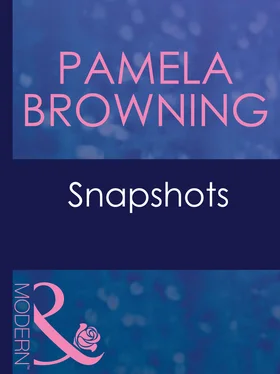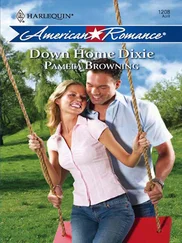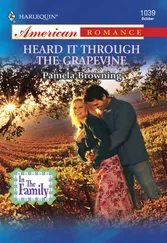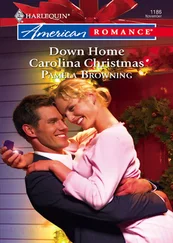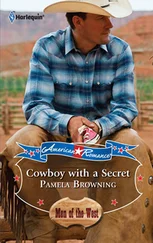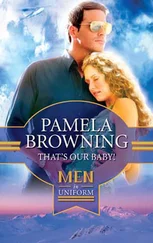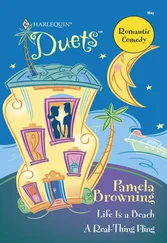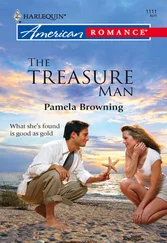We progressed through our teenage years making new friends and branching out in our interests, though the three of us, Rick, Martine and me, remained special to one another. We were still best friends. We were buddies. All for one and one for all.
In the middle of April during our senior year at John C. Calhoun High School when we were eighteen, Rick dropped Martine and me off at home. He drove a spiffy red Camaro in those days, a birthday gift from his parents, and we rode back and forth to school with him every day, the windows wide open, stereo speakers blaring full blast. On this occasion when we arrived home, two white envelopes were displayed prominently on the dining-room table. Martine spotted the envelopes first as she dropped her backpack on the nearest chair. “They’re here!” she shouted gleefully, and her yell brought me running from the kitchen, where I was already digging the container of our favorite mint chocolate-chip ice cream out of the freezer.
The envelopes bore the return address of the University of South Carolina. True, it was our hometown school, but it was also first choice for all three of us. We’d grown up cheering the Gamecocks at football games in Williams-Brice Stadium, and graduating from USC seemed as natural as spending weekends at Sweetwater Cottage or eating the traditional black-eyed-peas-and-rice dish known as hoppin’ john every New Year’s Day for luck. As natural as being Southerners, for that matter.
Martine and I ripped open the envelopes and read the acceptance letters within. It wasn’t five minutes before Rick phoned to say he’d received his letter, too.
“All for one, one for all, and all for USC!” we exclaimed gleefully, hanging up right away so we could call our friends to find out if they would be at USC, too.
It wasn’t until my acceptance from Furman arrived a week later that any of us had an inkling that our plans could change. Furman offered me a scholarship that, according to my guidance counselor, merited serious consideration.
“Do you realize what you’ve got here?” asked Mrs. Huff, eyeing me sternly through her bifocals after cornering me near the snack machines in the school hallway. “They don’t hand out this kind of money for nothing, un-huh. Your excellent scholastic record and your performance on the SAT went a long way toward getting you this scholarship award. I can’t believe you’d consider turning it down.”
I didn’t hesitate. “I’m going to the University of South Carolina with my sister and Rick,” I said firmly, whereupon Mrs. Huff yanked me none too gently into her cramped cubicle and sat me down for a serious talking-to.
“Listen up, honey. Furman is a small, private college. Here in the South, a Furman education is comparable to one from Princeton or Yale. Trista, you need to consider this. You really do.”
I’d applied to Furman only because earlier in the year Mrs. Huff had badgered me until I relented and filled out the forms. The spring before, I’d sleepwalked through a Furman-campus tour, bored because Martine and Rick had refused to accompany me. Martine wasn’t a Furman candidate, for was Rick. Martine’s grades weren’t nearly as good as either Rick’s or mine, and Rick had no intention of going anywhere but USC; his brother played football for the Gamecocks, and besides, he planned to join the same fraternity.
“I don’t want to go to Furman,” I told Mrs. Huff that day, but she wouldn’t allow me to exit the room until I’d promised to consider it. I always suspected that Mrs. Huff put a bug in my parents’ ears, because when I arrived home from school that day, they were both waiting in the living room to speak to me.
“Honey, a scholarship to Furman is a huge honor,” Mom said gently, her brow wrinkled in concern. The formal education of my mother, Virginia Wood Barrineau, had ended abruptly after two years at Columbia College when her parents lost everything they owned in a securities scam. As a result, Mom had had to support herself from the time she turned twenty. She’d worked as a file clerk in a law office until she married her boss, my dad. Mom regretted skipping her last two years of college, mostly because she’d always felt educationally, though not intellectually, inferior to the wives of Dad’s friends. To her credit, Mom wanted the best for her daughters, and if that meant shipping me off to Greenville a hundred miles away, well, so be it.
“Of course you’ll miss Martine and Rick, but Furman is a great opportunity,” my father added. “Maybe it would be good for the three of you to split up. You might enjoy exploring your independence in the next few years.”
The idea of that opportunity, at least, did resonate with me. I’d never hurt Martine’s feelings by telling her so, but wearing the same outfits, which we’d continued even after we became teenagers, was getting old. Martine was sensitive; Martine didn’t like change. Normally, I didn’t mind coddling her, and Rick catered to Martine, too. It was an unspoken pact of benevolent complicity: Martine was the weakest of the three, and the two of us compensated for that.
“I’ll think about it,” I sighed, intending no such thing. Mom smiled, and Dad chucked me under the chin the way he used to do when I was a little kid. He still harbored the hope that I would join the rapidly expanding family law firm someday, and Rick and I had often planned to do just that. When we were younger, a career in law sounded exciting to us, but lately I’d been doubting that I really wanted to be a lawyer.
Martine had already declared that she wasn’t going to sign up for three extra years of education after getting her B.A. Worse, as far as our parents were concerned, Martine was bent on pursuing an art degree, which Dad said would prepare her for nothing except flipping burgers at a local Hardee’s. I hadn’t yet told them that I was thinking about working in TV. Writing for the school newspaper had sparked an interest in journalism, and the insightful analysis of current events appealed to me. Moreover, I longed to be involved in something compelling and immediate, like television. If I’d mentioned this to my parents, they both would have gone ballistic.
The thing that finally tipped the scales toward Furman for me started out, ironically enough, as a small argument over who was going to bathe the dog. Bungie, our cockapoo, had ventured into the creek behind the house and tracked mud all over the back porch before being discovered. It was afternoon on a school holiday, and our parents stopped by the house for a few minutes before going on to a steering-committee meeting at the church.
I’d just come downstairs after getting ready to go to the mall with a group of friends, and Martine was lolling on the couch in the family room, watching TV. Our parents’ appearance set off a spate of delighted barking from Bungie, who took anybody’s arrival or departure as an occasion to initiate noise.
Barking drove my mother crazy. So did that peculiar deranged jumping up and down that Bungie always did when excited, find of like a bucking bronco, over and over and over. We’d tried obedience training once, but Bungie flunked out.
“For heaven’s sake,” Mom chided from the kitchen over the sound of running water. “Somebody give that fool dog a bath.”
“Do it right now before she tracks mud into the house. You know how your mother feels about that,” and Dad glowered menacingly, only to grin and waggle his eyebrows when Mom turned her back. “Hurry up, Virginia,” he called over his shoulder. “We’re going to be late.”
“Trista, you can take off my new hoop earrings right now,” Martine said.
I’d worn them without asking, true, but what were sisters for if not to borrow things? While Martine and I were engaging in a heated altercation that resulted in my forking over the earrings, Dad wandered back into the kitchen, and soon we heard the Lincoln backing out of the driveway.
Читать дальше
